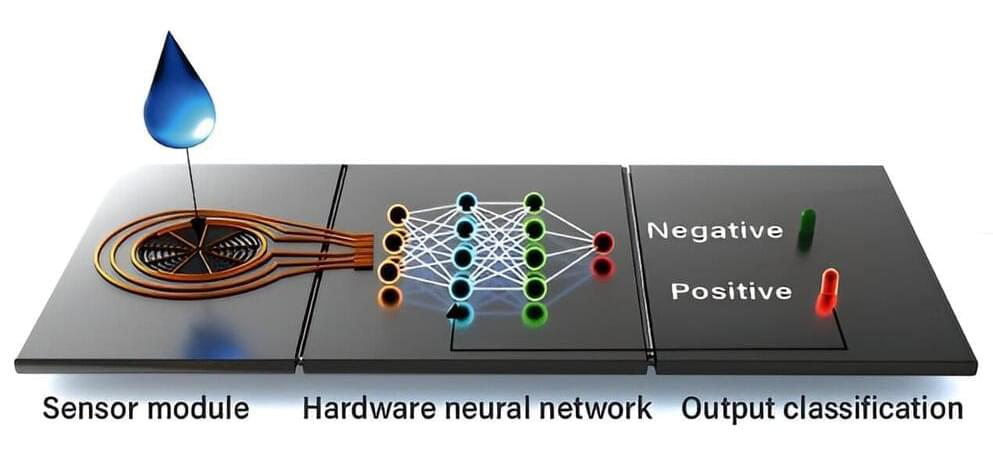Using a biosensor to detect cystic fibrosis as the test case, TU/e researchers have devised an innovative way to train neuromorphic chips as presented in a new paper in Nature Electronics.
Neuromorphic computers—which are based on the structure of the human brain—could revolutionize our future health care devices. However, their widespread use is hindered by the need to train neuromorphic computers using external training software, which can be time-consuming and energy inefficient.
Researchers from Eindhoven University of Technology and Northwestern University in the U.S. have developed a new neuromorphic biosensor capable of on-chip learning that doesn’t need external training. As a proof-of-concept, the researchers used the biosensor to diagnose cystic fibrosis based on sweat samples.
